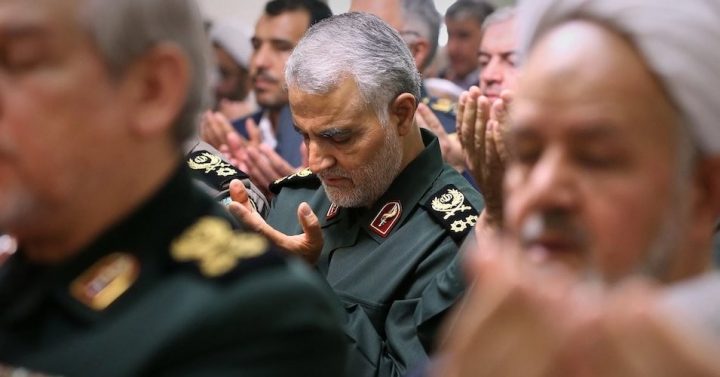“It’s like Iran killing the head of the CIA or the Mossad on foreign soil.”
By Eoin Higgins, staff writer Common Dreams
A drone strike believed to be from the U.S. military at or near the Baghdad airport reportedly killed Iranian Islamic Revolutionary Guard Corps Major General Qasem Soleimani, an act that observers warned could mark a significant step toward a hot war in the region.
Soleimani’s death was not confirmed at press time by either the U.S. or Iranian officials.
“The Trump administration just plunged the region into a likely massive sectarian and bloody crisis—and along with it, this country,” tweeted Al Jazeera journalist Sana Saeed. “Cautious to overstate the potential but it’s hard to ignore that targeting Soleimani is an explicit act of war.”
The Trump administration just plunged the region into a likely massive sectarian and bloody crisis – and along with it, this country. Cautious to overstate the potential but it’s hard to ignore that targeting Soleimani is an explicit act of war. https://t.co/wtv0SABazv
— Sana Saeed (@SanaSaeed) January 3, 2020
The strike came less than 24 hours after acting Secretary of Defense Mark Esper told reporters that the U.S. military was willing and ready to undertake pre-emptive strikes against Iranian-backed militants in Iraq, a reaction to protests outside of the American embassy in Baghdad paralyzed the 104-acre complex.
“If we get word of attacks, we will take preemptive action as well to protect American forces, protect American lives,” said Esper. The game has changed.”
As the New York Times reported:
The strike killed five people, including the pro-Iranian chief of an umbrella group for Iraqi militias, Iraqi television reported and militia officials confirmed. The militia chief, Abu Mahdi al-Muhandis, was a strongly pro-Iranian figure.
Journalist Rania Khalek took to social media to explain the situation and the context of Soleimani’s place in the Iranian military.
“Most Americans won’t understand the gravity of this,” said Khalek. “Qasem Soleimani is head of the Iranian IRGC’s elite Quds Force, which conducts operations outside of Iran in both Iraq and Syria.”
The National‘s deputy foreign editor Jack Moore described the importance of the strike as tantamount to Iran killing Gina Haspel.
“It’s like Iran killing the head of the CIA or the Mossad on foreign soil,” said Moore. “This isn’t just about Iraq.”










